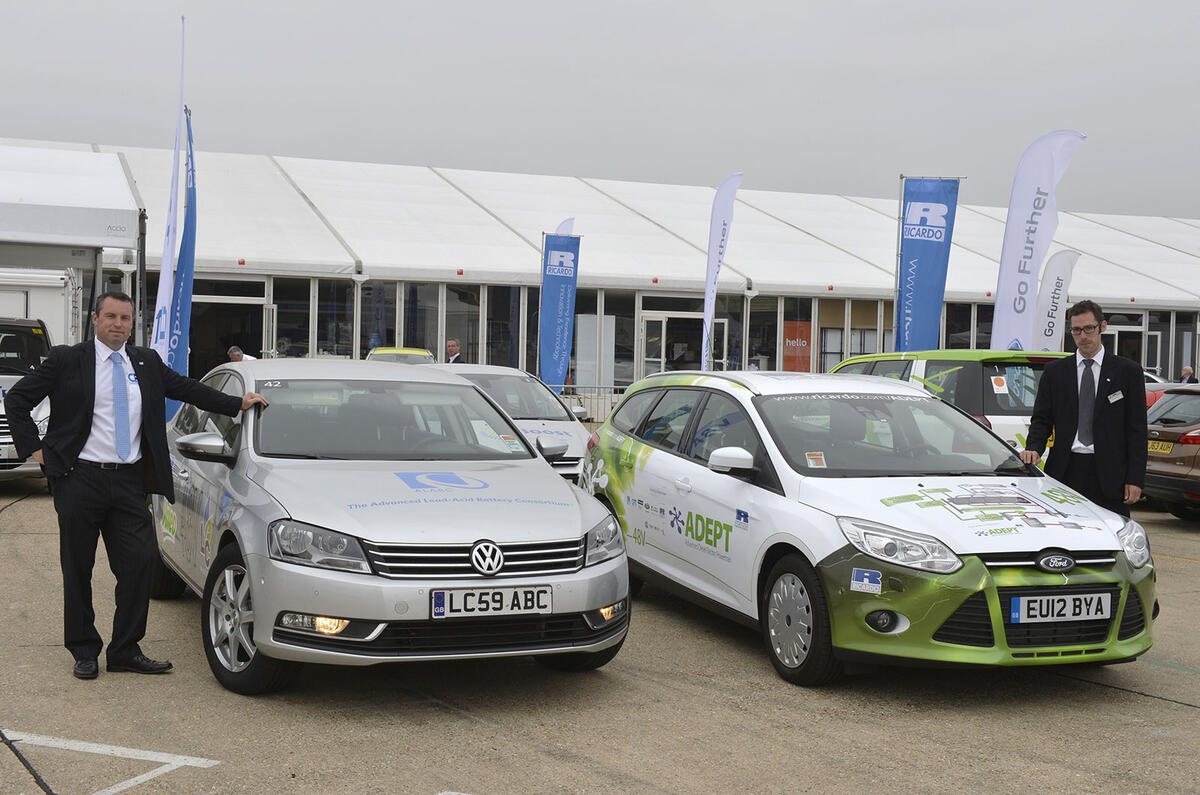The new technology revealed, R&D projects floated and deals thrashed out at the Cenex Low Carbon Vehicle Event 2015 (LCV) at Millbrook test track this week will lead to future cars being more efficient and possibly even more fun to drive.
More than 2500 visitors are expected at the two-day event from around 1000 different companies – everyone from giants like Jaguar Land Rover to small start-ups – 150 or so of which will be exhibiting.
Here they will come together to test drive the newest engineering prototypes, hear about the latest funding available and meet potential partners to get their ‘next big thing’ idea off the ground and track the progress the low-carbon automotive world has made in the past 12 months.
The UK car industry’s carbon output reduction is bound into future law, but it is viewing this as a positive: it knows it can be a world leader in the technologies required to achieve this. Also, as we are increasingly finding out, reducing the weight and adding electrification to cars is only enhancing the driving experience. Win win.
The coffers of the industry have swollen since the UK automotive sector centrally adopted developing low-carbon technologies in the early part of the last decade – a time when the UK car industry was well and truly in the doldrums.
A recent report for the Low Carbon Vehicle Partnership, designed to promote the sale and supply of low-carbon vehicles in this country, found that there has been £40bn of investment in the low-carbon automotive sector since 2003 – a figure matched by the sector’s turnover. Exports from the overall automotive sector have more than doubled in value from £12bn in 2004 to £26bn in 2014, too.
So impressive is the work of the low-carbon vehicle sector that delegates now attend the LCV event from the rail, marine and aerospace sectors, all looking to see if the tech is transferable. Germany technology giants such as Bosch are also in attendance, something the CEO of event organiser Cenex Robert Evans says, “shows the strength of the UK industry”.
Cenex itself was set up 10 years ago under government funding designed to encourage the development of low-carbon propulsion technologies in the UK and promote inward investment. Now a not-for-profit organisation working to help companies bring their technology to market, it started the LCV show in 2008 as a way of bringing the industry together.
“We wanted to establish an event that gave the community a singular meeting point,” Evans says of the LCV show. “Here they can catch up with the latest agendas, find out about latest funding, show off the best of what’s current, and find out what progress has been made to meet challenging targets.
The first LCV show was a one-day event attended by 800 people. Now it’s now more than three times the size and twice as long. Evans says it is unique across the world because it is so all-encompassing; it’s a networking event, one with presentations, workshops and seminars, and also one where you can test drive technologies in a real test track environment.








Join the debate
Add your comment
We need more choice!
Laws can be a good thing
Lose, lose
Did it ever occur to you that this "law" will never achieve its intended purpose - that of lowering the temperature of the entire planet? What it will achieve, beyond any doubt, is the industry's complete neglect of the harmful exhaust particulates which are known to damage human life.
I know what you're saying,